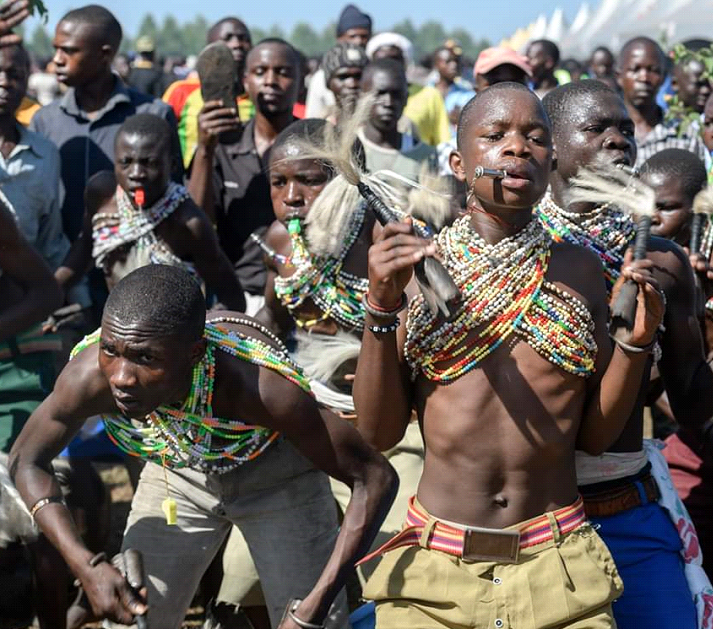The Bagisu tribe is an ethnic group found in the eastern region of Uganda, primarily in the districts of Mbale, Sironko, and Bududa. The Bagisu, also known as the Bamasaba, is part of the larger Bantu-speaking people and are believed to have migrated to their current site from the Congo region around the 16th century.
.

The Bagisu are known for their unique cultural practices, with the most notable being male circumcision, which is a rite of passage for boys between the ages of 12 and 18. The circumcision ceremony, known as Imbalu, is a significant cultural event that involves a series of rituals and celebrations that last for several days. During the ceremony, the initiates wear traditional regalia and are subjected to various tests of bravery, endurance, and strength before undergoing actual circumcision. The ceremony is considered a symbol of transition from boyhood to manhood, and it is believed to have originated as a way of preparing young men for the rigors of adulthood, including marriage and warfare.
The Bagisu are also known for their vibrant music and dance culture, which is deeply ingrained in their daily lives. Their traditional music is characterized by the use of instruments such as drums, flutes, and xylophones, and the songs often have religious or social themes. The Bagisu also has a rich storytelling tradition, with tales passed down from generation to generation about their history, culture, and way of life.
The Bagisu are predominantly agriculturalists, with subsistence farming being their main economic activity. They cultivate crops such as bananas, coffee, maize, beans, and groundnuts, and they also rear livestock such as cattle, goats, and sheep. In recent years, some Bagisu has ventured into commercial farming, producing crops for sale in local and regional markets.
Despite their rich cultural heritage and economic activities, the Bagisu have faced several challenges over the years. The region where they live is prone to landslides and flooding, which often leads to loss of life and destruction of property. Additionally, their traditional practices, particularly male circumcision, have faced opposition from some quarters, with some people questioning their safety and hygiene.
In conclusion, the Bagisu tribe is an important part of Uganda’s cultural diversity. Their unique practices and traditions, particularly the Imbalu ceremony, have made them a fascinating subject for researchers and tourists alike. Despite the challenges they face, the Bagisu continue to preserve their culture and way of life, and they remain an integral part of Uganda’s cultural heritage.